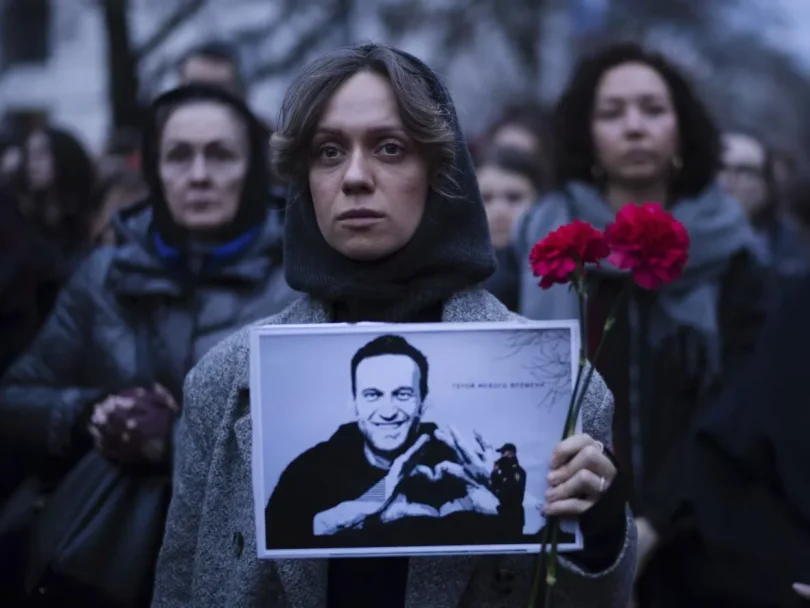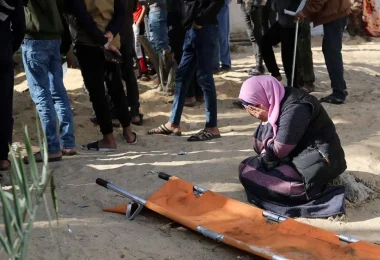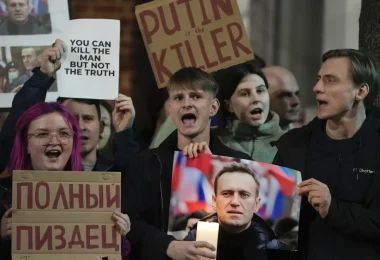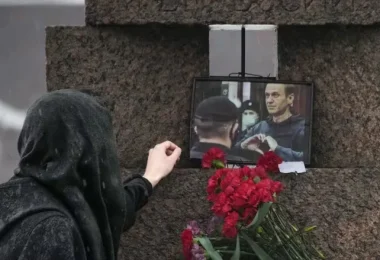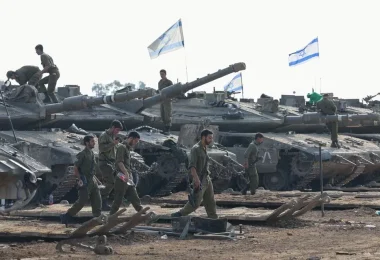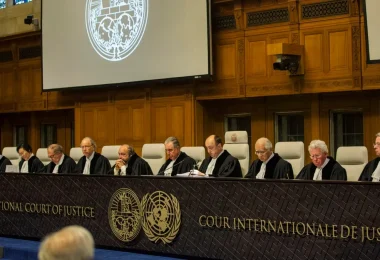Alexei Navalny, the Russian opposition leader known for his unwavering stand against corruption and his audacious defiance of the Kremlin, has been confirmed dead. Navalny’s death occurred in the remote confines of an Arctic penal colony, with his spokesperson, Kira Yarmysh, declaring the incident not merely a death but a “murder.”
Navalny, who had been serving time in the penal colony located in the Yamalo-Nenets region, some 1,900 kilometers northeast of Moscow, was reported to have fallen critically ill and subsequently died at 2:17 p.m. local time on a fateful Friday. The news was first relayed through an official note to Navalny’s mother, bringing an abrupt and sorrowful end to the life of one of Putin’s most vocal critics.
Yarmysh, in a statement filled with grief and disbelief, recounted how efforts to trace Navalny’s remains led them to the city of Salekhard, only to be met with closed doors and elusive answers from local authorities. This obfuscation by officials has only added to the agony and the multitude of unanswered questions surrounding Navalny’s untimely death.
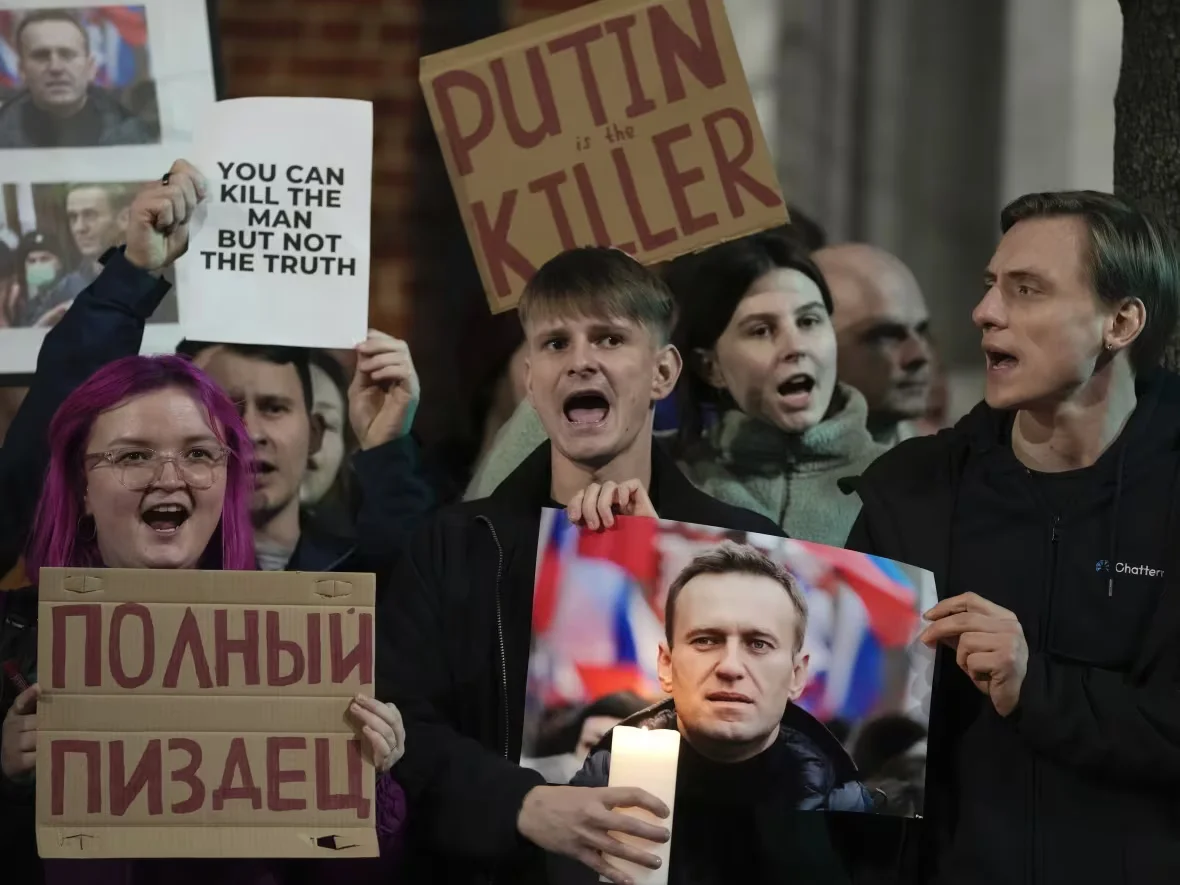
Protesters stage a demonstration opposite the Russian Embassy in London, in reaction to Navalny’s death. (Kin Cheung/The Associated Press)
The international response was swift and condemnatory. Ukrainian President Volodymyr Zelenskyy, speaking at the Munich Security Conference, lambasted Putin directly for Navalny’s death, labeling it an act of blatant murder and dismissing any legitimacy Putin might claim as the head of the Russian state. Echoing this sentiment, U.K. Foreign Secretary David Cameron hinted at impending actions against those responsible, emphasizing that such human rights outrages cannot be overlooked.
In Russia, the grief was palpable, with citizens braving potential repercussions to lay flowers and pay their respects to Navalny. However, these acts of remembrance were met with resistance from authorities, with at least 212 detentions reported across the country. This suppression of mourning highlights the continuing grip of fear and repression that characterizes the current Russian regime.
As the world reels from the news of Navalny’s death, the Kremlin has dismissed the outpouring of international condemnation as “unacceptable” and “outrageous,” despite not yet providing a conclusive cause of death. This stance, as expected, has done little to quell the outcry or the demand for a transparent investigation into the circumstances that led to the demise of one of Russia’s most resilient fighters for democracy and truth.

